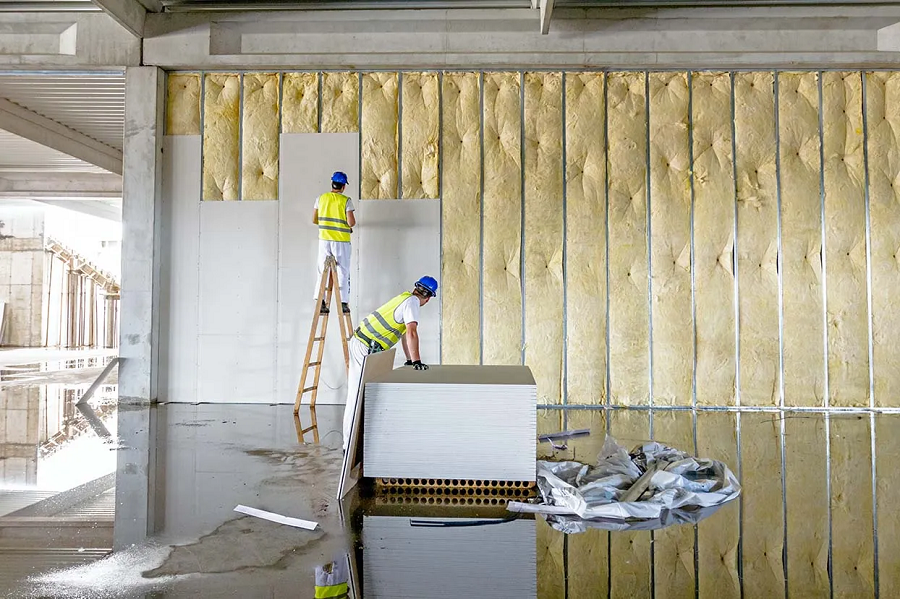What Makes Commercial Drywall Different?

Image Source: www.billsdrywallinc.com
While they may look the same from the outside, different types of drywall offer unique benefits that can enhance construction and renovation projects. Knowing these differences can help Grey County Drywall Experts and homeowners choose the right type of drywall for each room. Some types of drywall are designed to resist fire, moisture, or sound.
Drywall is an essential building material that solves many problems that older materials like plaster could not. It is easy to cut and screw into place, making it a faster, cleaner construction process. It also keeps rooms insulated and warm in winter and cool in summer, saving on heating and cooling costs. It even acts as a fire barrier and can slow the spread of flames, helping keep people safe.
While residential drywall can be installed using wooden studs, commercial drywall often uses metal framing to meet fire safety requirements. This helps ensure a more durable and versatile building structure, which is important in high-traffic business environments. Additionally, specialized drywall panels with thicker cores and special facing materials can be used to provide enhanced fire resistance and sound control, which is ideal for schools or offices.
Another common type of drywall is moisture-resistant, which is useful for bathrooms or other areas that may become damp. Unlike regular drywall, which can develop mold and mildew and become discolored over time, this variety has a green coating that protects it from the elements. This type of drywall also offers additional fire resistance and is more water-resistant than standard gypsum board.
Impact-resistant drywall is engineered to withstand physical impacts and is particularly useful in schools or offices where walls are subject to heavy wear and tear. Its dense core is surrounded by a special face material that adds strength to the drywall, which can reduce damage to walls and other structural components when struck.
Fire-rated drywall is an essential component of many commercial buildings and can be required by local fire codes in public spaces. This type of drywall has a gypsum core with special additives that make it more resistant to fire and less likely to spread when burned.
Acoustics play an essential role in commercial space design, promoting productivity and speech intelligibility for occupants. Proper acoustic design requires careful consideration of the layout, wall materials, and other factors that can affect sound transmission and absorption. For example, acoustic insulation is commonly used to reduce noise, and resilient channels or sound isolation clips can decouple drywall from the frame to further reduce noise. In addition, a consistent texture throughout the space can enhance aesthetics and facilitate cleaning.
Grey County Drywall
greycountydrywall.ca
info@greycountydrywall.ca
(647) 625-2013





